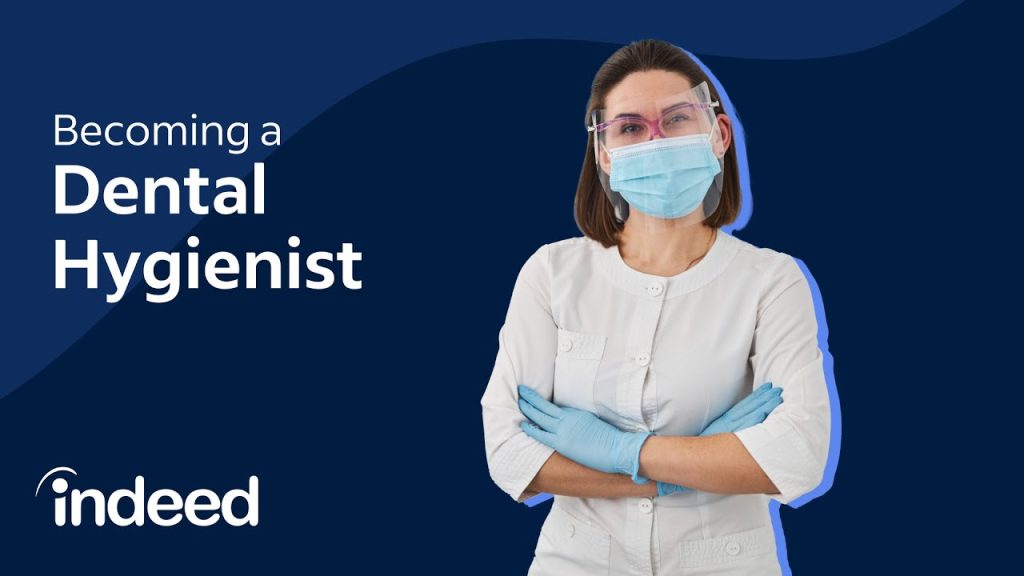Did you know that the demand for dental hygienists is projected to grow by 20% from 2016 to 2026? Becoming a dental hygienist can be a rewarding career choice, but it requires a solid education and training.
In order to become a dental hygienist, there are specific education requirements that you need to meet. From high school prerequisites to licensing exams, there are several steps you need to take to achieve your goal.
But don’t worry, we’ve got you covered. In this discussion, we will explore the various education requirements for dental hygienists and provide you with the essential information you need to begin your journey towards this fulfilling profession.
So, let’s get started!
High School Prerequisites
Are you wondering what high school prerequisites you need to pursue a career as a dental hygienist? Well, you’re in luck! The path to becoming a dental hygienist starts in high school, where you can lay the foundation for your future career.
One of the key prerequisites for aspiring dental hygienists is a high school diploma or its equivalent, such as a General Education Development (GED) certificate. This is the minimum educational requirement to gain admission into a dental hygiene program.
In addition to a diploma or GED, certain high school courses can better prepare you for the rigors of dental hygiene education. Science courses like biology and chemistry are particularly important, as they provide a strong foundation for understanding the human body and its functions. Mathematics courses, such as algebra and statistics, can also be beneficial, as they develop critical thinking and problem-solving skills.
Furthermore, it can be advantageous to take courses in health and anatomy, as they provide valuable knowledge about the human body and its systems. Communication and interpersonal skills are also essential for dental hygienists, so taking courses in English or public speaking can help develop these skills.
Dental Hygiene Program Options
When considering dental hygiene program options, there are a few key points to keep in mind.
Firstly, the duration of the program can vary, with some programs lasting two years and others lasting four years.
Additionally, it’s important to be aware of the admission requirements for each program, as they may differ in terms of prerequisites and application deadlines.
Program Duration Options
You have several options for the duration of dental hygiene programs, allowing you to choose the best fit for your schedule and goals.
Dental hygiene programs can range from certificate programs that can be completed in as little as one year to associate degree programs that typically take two to three years to complete.
If you’re looking for a quicker option to enter the workforce, a certificate program might be the right choice for you.
On the other hand, if you prefer a more comprehensive education and want to have opportunities for career advancement in the future, an associate degree program would be a better fit.
It’s important to consider your personal circumstances and career goals when deciding on the duration of your dental hygiene program.
Admission Requirements
If you’re considering applying to a dental hygiene program, it’s important to be aware of the admission requirements for the different program options available.
Each program may have specific requirements, but there are some common prerequisites that most dental hygiene programs require. First and foremost, you’ll need a high school diploma or equivalent. Additionally, you may need to complete prerequisite courses in subjects such as biology, chemistry, and anatomy.
Some programs may also require you to submit your SAT or ACT scores. In terms of personal characteristics, good manual dexterity, strong communication skills, and attention to detail are often valued. It’s also crucial to have a genuine interest in oral health and helping others.
Required Coursework
To become a dental hygienist, completing specific coursework is a requirement. This coursework is designed to provide you with the necessary knowledge and skills to succeed in your career. The coursework typically covers a wide range of subjects including dental anatomy, oral hygiene techniques, radiography, dental materials, and patient education. These courses will teach you how to properly clean teeth, take dental x-rays, and educate patients on oral health.
Additionally, you’ll also learn about dental diseases and their prevention, as well as how to identify and treat common dental problems. In some programs, you may also have the opportunity to learn about topics such as dental practice management and dental ethics. It’s important to note that the specific coursework requirements may vary depending on the program and the state in which you plan to practice. Therefore, it’s essential to research and understand the specific coursework requirements of the dental hygiene program you’re interested in.
Clinical Training
Now it’s time to get hands-on experience and develop practical skills through clinical training.
As a dental hygienist student, you’ll have the opportunity to apply what you’ve learned in the classroom to real-life scenarios.
This hands-on training is crucial for honing your abilities and preparing you for the challenges you’ll face in your career.
Hands-On Experience
During dental hygienist education, hands-on experience through clinical training is an essential component for developing the necessary skills and expertise in providing comprehensive dental care.
Through this practical training, you’ll have the opportunity to apply the knowledge gained in the classroom to real-life situations. Under the guidance of experienced dental professionals, you’ll learn how to perform various dental procedures such as teeth cleaning, dental x-rays, and oral health assessments.
This hands-on experience will enable you to develop proficiency in using dental instruments and equipment, as well as honing your communication and patient care skills. Additionally, clinical training allows you to gain valuable insights into the dental field, understand the importance of infection control protocols, and learn how to work effectively as part of a dental team.
Practical Skills Development
As you progress through your dental hygienist education, your hands-on experience in clinical training will play a vital role in developing your practical skills and expertise.
Clinical training provides an opportunity for you to apply the theoretical knowledge gained in the classroom to real-life dental scenarios. Under the guidance of experienced dental hygienists and faculty members, you’ll learn how to perform various procedures, such as teeth cleaning, fluoride application, and dental X-rays.
Through repetitive practice, you’ll refine your techniques and gain confidence in handling different dental instruments and equipment. Additionally, clinical training allows you to interact with patients, improving your communication and patient care skills.
Licensing Exams
To become a licensed dental hygienist, you must successfully pass a series of exams that assess your knowledge and skills in the field. These licensing exams are crucial as they ensure that you have the necessary competence to provide safe and effective dental hygiene care to patients.
The first exam you’ll need to take is the National Board Dental Hygiene Examination (NBDHE), which is administered by the American Dental Association (ADA). This exam evaluates your understanding of dental hygiene theories and concepts, as well as your ability to apply them in practical situations. It covers various topics such as oral health assessment, oral hygiene instruction, and dental hygiene care planning.
After passing the NBDHE, you’ll then need to take a state or regional clinical examination. This exam focuses on evaluating your clinical skills and your ability to perform various dental hygiene procedures accurately and safely. It typically includes components such as patient assessment, radiographic interpretation, periodontal instrumentation, and clinical case presentations.
It’s important to note that the specific requirements and exams may vary by state, so it’s essential to check with your state dental board for the exact details.
Continuing Education Requirements
You are required to fulfill continuing education requirements to maintain your dental hygienist license. Continuing education is an essential aspect of your professional development as a dental hygienist. It allows you to stay updated with the latest advancements, techniques, and research in the field of dental hygiene. By participating in continuing education courses, you can enhance your knowledge and skills, ensuring that you provide the highest quality of care to your patients.
The specific continuing education requirements vary from state to state, so it’s important to familiarize yourself with the regulations in your state. Generally, you’ll need to complete a certain number of continuing education credits within a specified time frame to renew your license. These credits can be earned through various activities such as attending workshops, conferences, seminars, or taking online courses.
Continuing education not only helps you maintain your license but also enables you to expand your professional network and connect with other dental hygienists. It provides opportunities to learn from experts in the field and exchange ideas with colleagues, fostering a sense of community and collaboration within the dental hygiene profession.
Professional Associations and Resources
Joining professional associations and utilizing available resources is essential for dental hygienists to stay connected with their colleagues and access valuable support and information.
As a dental hygienist, you can benefit greatly from becoming a member of professional associations such as the American Dental Hygienists’ Association (ADHA) or the International Federation of Dental Hygienists (IFDH). These associations offer numerous advantages, including networking opportunities, continuing education courses, and access to the latest research and industry trends. By joining these associations, you can connect with other dental hygienists, share experiences, and learn from each other’s expertise.
In addition to professional associations, there are also various resources available to help you enhance your knowledge and skills as a dental hygienist. Online platforms, such as Dentalcare.com and Colgate Professional, provide a wealth of educational materials, articles, and webinars on topics ranging from oral health to practice management. These resources offer convenient and easily accessible information that can help you stay updated on the latest advancements in dental hygiene.
Furthermore, it’s important to take advantage of mentorship programs offered by professional associations or local dental societies. These programs can pair you with experienced dental hygienists who can provide guidance, support, and advice in your career journey.
Frequently Asked Questions
Are There Any Specific High School Courses or Prerequisites That Are Recommended for Aspiring Dental Hygienists?
There are specific high school courses and prerequisites recommended for aspiring dental hygienists. It is advised to take science courses like biology and chemistry, as well as math and communication classes.
What Are the Different Options Available for Dental Hygiene Programs, and How Do They Differ From One Another?
When considering dental hygiene programs, you have different options available. These programs may differ in terms of curriculum, duration, and requirements. It is important to research and find the program that best suits your goals and needs.
Are There Any Specific Courses That Are Required for Dental Hygiene Programs, and What Topics Do These Courses Typically Cover?
Are there specific courses required for dental hygiene programs? These courses typically cover topics such as oral anatomy, radiology, dental materials, periodontology, and clinical dental hygiene skills.
How Much Clinical Training Is Required for Dental Hygienists, and What Does This Training Involve?
You need a significant amount of clinical training to become a dental hygienist. This training will involve hands-on experience working with patients, learning about different dental procedures, and honing your skills in oral health assessment and treatment.
What Licensing Exams Do Dental Hygienists Need to Take in Order to Practice, and What Is the Process for Obtaining a License?
To practice as a dental hygienist, you need to pass the licensing exams. The process involves completing an accredited dental hygiene program, submitting an application, and passing the National Board Dental Hygiene Examination and a state or regional clinical exam.
Conclusion
So there you have it! If you’re interested in becoming a dental hygienist, make sure you meet the high school prerequisites and explore your options for dental hygiene programs.
Once you’re enrolled, complete the required coursework and gain valuable clinical training. Don’t forget to pass the licensing exams and stay up to date with continuing education requirements.
Joining professional associations and utilizing available resources will also help you thrive in this rewarding career.
Good luck on your journey to becoming a dental hygienist!


